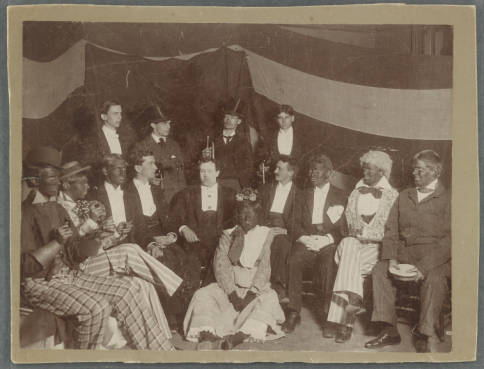Inherited at such a young age, language appears an embedded, inherent function of human experience. It provides a lexical framework through which meaning can be communicated, shared, and recorded. Shakespeare’s deployment of variable meanings through puns endow language a dominant role in the creation of cultural tradition; language is a tool for persuasion and interaction. The figure of Caliban, however, punctures the hegemony of conventional linguistic traditions that seek to distinguish and categorize through naming. By creating space for alternative sounds, Caliban concomitantly reimagines the position of man in nature that initiates am early eco-consciousness. Continue reading
Tag Archives: Caliban
Otherization in The Tempest
In her article “Shakespeare’s Tempest and the Discourse of Colonialism”, Deborah Willis seeks to criticize the current state of discourse regarding the depiction of colonialism in The Tempest. Specifically, she seeks to criticize the arguments made by Paul Brown in a recent essay. Continue reading

Caliban and Sambo
At the height of the American Civil War, the debate on slavery raged in the American North and South. The North supported the abolition of slavery whereas the South wanted to keep the institution of slavery to sustain their plantation-centric economy. Where Shakespeare’s The Tempest enters the fray is with a political cartoon published at the midpoint of the war: January 24, 1863.
(Post) Colonized Caliban
Recent scholarship has begun examining the relationship of Caliban and Prospero through the lens of postcolonialism, leading to a discourse that explores this relationship as analogous with that of the colonized and colonizers. This argument aligns Shakespeare’s work in the context of history, applying it directly to actual events. This allegorical reading explores the nuances of Caliban being abused by Prospero after introducing him to the island and the way that aspects of physical abuse and use of language work in ways to oppress Caliban as parallel to that of European powers colonizing Africa and the “New World”. Continue reading

Caliban: the missing link?
Forget about Lucy as the missing link! Literature professors and costume designers have a long history of viewing Caliban as a character who fills an evolutionary void between man and beast. Continue reading
Narrative and the Plantation Colony
What are the plantations of The Tempest? Plantation, as defined in Shakespeare’s time, referred to the literal cultivation of the earth—to the creation of a colony on conquered land—and to the sowing of an idea, a belief system: a narrative.
